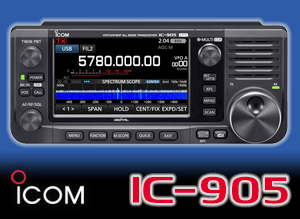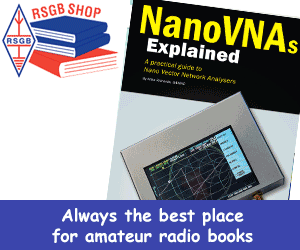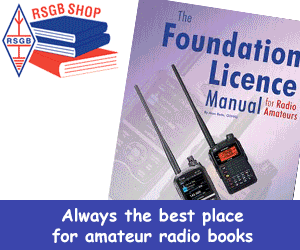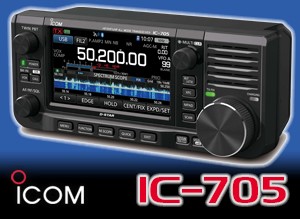Sending cards to the Bureau
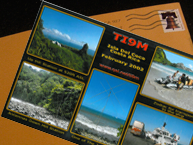
Cards from Members destined for amateurs in all parts of the world are sent to the RSGB QSL Bureau, P.O. Box 5, Halifax HX1 9JR, England.
In the course of a year, the RSGB QSL Bureau processes over 1.5 million cards.
This section provides advice and information for radio amateurs wishing to send cards via the RSGB QSL Bureau.
PLEASE NOTE
- Before sending large or heavy packages, Members, affiliated groups and clubs are advised to consult the current RSGB Yearbook for terms of use
- Independent carriers cannot deliver to a Royal Mail P.O. box—please see IARU list for an alternative street address
Proof of membership
Each batch of single page, standard cards—see What is a QSL Card?—should contain proof of current membership no more than three months old.
An original address label and identification numbers cut from the bag used to post RadCom in each package is required.
GB Special event call holders should provide a copy of the Notice of Variation (NOV) with every package of outgoing cards along with proof of membership , or group affiliation. Cards received without an NOV cannot be processed and may not be returned.
Clubs and groups
As clubs receive the RSGB Yearbook each year in lieu of RadCom, they should include sufficient information for a check to be made against the affiliated societies register; ideally in the form of a club letterhead, showing the membership number and renewal date.
To speed status checking, all clubs and special interest groups—e.g. DX, contest, event, mode, etc.—must ensure that they register contact details directly against the club or group name’s unique membership number.
Clubs and special interest groups should not be listed as a secondary call to any personal call sign, or group QSL manager’s personal membership of RSGB—if in doubt please update before sending cards.
Heavy users – Fair Usage policy
As part of their subscription, each Member can send up to 15kg of cards through the Bureau each year—about 5,000 standard cards.
Each Affiliated Club can send up to 20kg through the Bureau each year.
Additional cards will be charged at £6 per kilo or part thereof.
Members should only send to the Bureau a maximum of 1kg of cards to any single DXCC entity per month—larger quantities should be sent directly to the bureau in the relevant country.
Heavy users such as DXpeditions, some clubs, etc., will be required to send the bulk of their outgoing cards direct to the destination countries.
How the cards are sorted
When cards arrive at the bureau, those destined for abroad are sorted into countries and despatched in bulk to the appropriate overseas bureaux, most of which are operated by member societies of the International Amateur Radio Union.
Cards for stations within the UK are sorted into call sign groups, each of which is operated by a volunteer sub-manager.
This person receives cards sent to the sub-bureau from the main QSL bureau and puts them into envelopes received from UK amateurs.
Making your own QSL card
When designing QSL cards, remember that they should be made of standard card and should not exceed normal postcard size—140mm x 90mm (5.5” x 3.5”).
Large or unusually shaped cards are likely to be damaged when they are folded, while underweight cards can be difficult to handle and may fall out of packages.
Rules to speed up handling of cards
Many more cards can be processed quickly if members follow these simple rules;
- Print the station worked cal lsign clearly in the top right-hand corner of the card or label, using clear bold print with a minimum size of 12 point to make for easy reading
- Routing instructions such as and additional ‘via another station’ call sign should be printed directly underneath—using a different colour is most helpful
- Sort cards alphabetically by prefix, except USA cards which should be sorted into call areas regardless of prefix; in addition, keep countries with more than one prefix together, so that—for example— cards for 7J are next to those for JA, however, sort by QSL Manager’s call sign if relevant
- When preparing cards to be posted, pack them the same way up, do not use any separators or other markers between cards, packages should be wrapped adequately so as not to get damaged in transit and correct postage must be used.
- Separate all pre-sorted cards for the UK from those going overseas into three groups G.M & 2; UK cards are subject to more detailed sub-sorting and need to be clearly and easily identified on receipt to avoid unnecessary delay
Listeners and QSL cards
Listeners who are members may use the bureau but are reminded that their reports should contain sufficient information to be of genuine value to transmitting amateurs.
Reception reports relating to shortwave broadcasting stations cannot be accepted.
Overseas members
Overseas members of the RSGB in countries where there is no QSL service operated by their IARU member society may send cards to the RSGB QSL bureau for distribution.
Overseas amateurs who are not members of the RSGB may send cards addressed to UK stations only direct to the RSGB QSL Bureau.
Any questions?
If you have any questions, contact the RSGB QSL Bureau.

